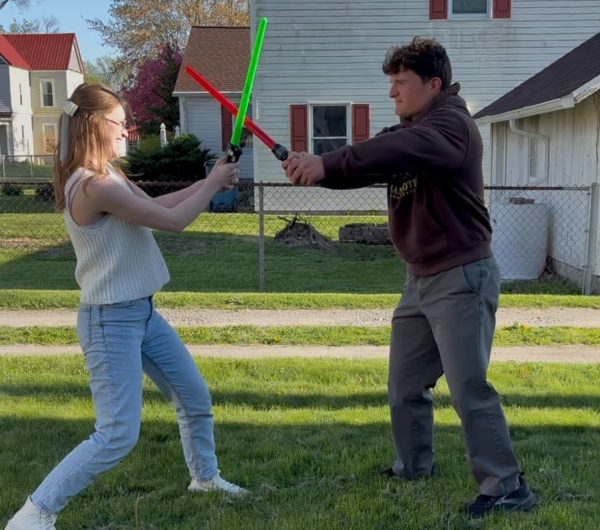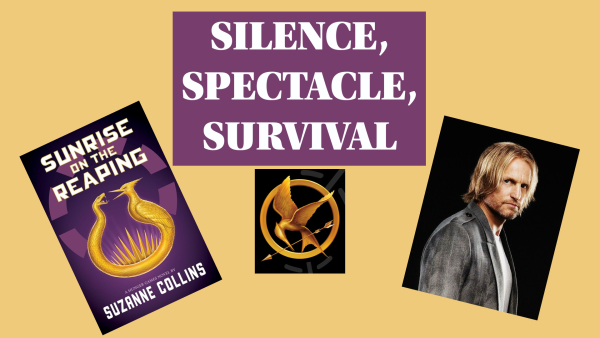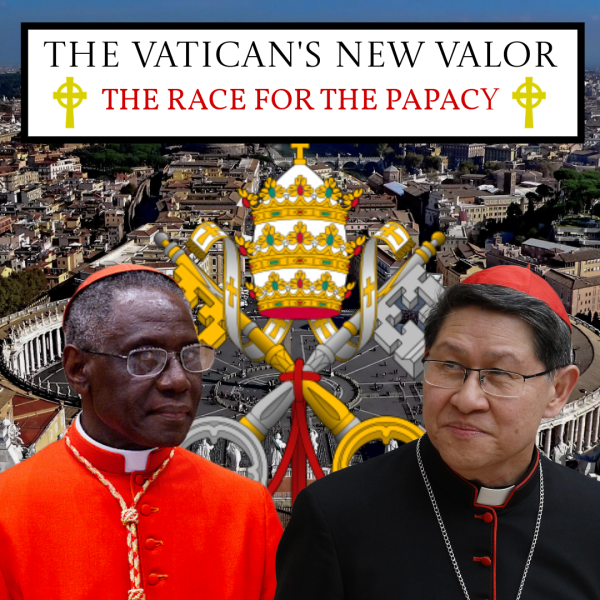The Claps of Mankind

The Claps of Mankind
A person wakes up getting ready for work in the morning, and the first thing he does is make coffee. The man eats a hot breakfast and brushes his teeth afterward. Instead of discarding his unfinished coffee on the ground to help keep the soil fertile, he dumps it out in the drain: causing it to run off into the ocean. This John Doe finishes getting ready and starts warming up his truck before traveling afar for work. On his way, he lights up a cigarette to calm his nerves and then chucks it out the window along with his leftover McDonalds meal from the day before. Finally, he arrives at his workplace: the factory. After all this, the man never stopped to realize the consequences of his actions and the numerous times he’s had a hand in pollutants that harm this world. Just like this man, we also do not think about how our simple actions can negatively affect our environment even if we do not smoke or work at a factory.
Greta Thunberg, a seventeen-year-old Swedish environmental activist, has made numerous public appearances talking about climate change and attempting to persuade others to join her fight to help make the world a better place; some of her speeches went viral worldwide. “You say you love your children above all else, and yet you are stealing their future in front of their very eyes.” Thunberg has performed many empowering speeches that hit right at the core. She has gained over 3.2 million followers on twitter and possibly even more in the real world. Greta Thunberg’s most well-known and empowering speech was at the United States Climate Action Summit, in which she talked about how she shouldn’t be on that stage right now, and that the leaders have failed us and now rely on the younger generation to clean up their mess. “You all come to us young people for hope. How dare you…”
Clara Licklider, a sophomore, feels that our environment needs to be protected and taken care of more. “Wildlife all around us are dying each second due to our pollution, deforestation, and neglect to take care of the world.” Licklider wants the Earth to be “a happier, healthier place for all creatures,” but believes that it is only going downhill. She believes we can help attempt to change the environment for the better if “people noticed what they are doing wrong in the world and try to correct themselves because little things accumulate to bigger things that can make either a positive or negative impact.” We, the citizens of Earth, should be doing the simple things that can lead to major events to better our environment. Mrs. Rush, a well-known and widely respected math teacher, stated that she believes we should “conserve energy such as turning the lights off when we’re not home or shutting off the water when it’s not in use,” to help better our environment. In addition to that, Taylor Rodabaugh, a junior, also agrees that we should “start doing the little things that can accumulate to bigger and better events.”
Many feel helpless towards the Australian fire and feels as if there is barely any hope left to save the animals or land. Sam Miller, a senior at cass, stated that he feels helpless over the Australian fires and believes that no amount of donation could help make a difference. “I don’t possess any skills that would help the effort easier.” Miller knows the fire is a tragic event to occur but feels he can’t do anything to help.
Mr. Quick, a respected and hard-working physical education trainor, believes the obvious answer to better our environment would be to “cut down our carbon emissions,” but in all reality, it really depends on our individual actions. “…each person can be more conscious of their consumer habits.” Quick also believes that one solution to help our environment globally can be by “ choosing to use/purchase more sustainable foods, products, and services,” and that our environment is “highly impacted by our food system.” Quick’s examples of non-sustainable events that negatively impact our Earth are “reforestation, loss of soil, factory farming of animals, massive food waste, food processing, transport and refrigeration of food…” He also believes that “the fact that the vast majority of our food consists of only 3 crops (wheat, corn, soy) not only impacts our personal health, but also negatively influences the environment by destroying soil health, increasing factory farming, and creating a chain reaction of environmental killing processes to get food from farm to fork.” Quick stated if communities “chose to be more sustainable, we could make waves on the way to creating a healthier environment.”
It may be hard to believe, but even just one person really can make a big difference. The little things can help as well, and sacrifices will have to be made. The question is, who is willing to make the sacrifices?






Kale Skiles • Sep 23, 2020 at 8:10 pm
This is a great article. It has taught me about things I didn’t even think of, this was a very enjoyable and persuasive read.
Hailee Roeske • Sep 16, 2020 at 8:05 pm
I really like your article. I completely agree with it. It definitely opened my eyes on this subject. I learned many things I didn’t know. I really like how you have different people’s opinions. You wrote this article well and made it enjoyable to read!
Sarah Cicalo • Feb 7, 2020 at 12:25 pm
I agree with your article completely! Your article was also very well written! Great job!
Aleya Mygrant • Jan 21, 2020 at 12:57 pm
This article is so good! I am so glad that I read it. I love that you showed many other opinions alongside yours. I also liked that you mentioned the fires in Australia. The fires are a big problem that is crucial to many people and animals. I completely agree with the concept of “one person can really make a big difference.” There are many ways that one person can really help the environment. Great job Bella!
McKayla Thompson • Jan 15, 2020 at 9:15 am
Great article Bella! I like your anxious and worry-filled tone throughout this article. After watching the film in AP environment about this subject, I had the same feeling as you. Everyone needs to help keep the environment clean and safe. Keep up the great writing skills.
Samuel P Miller • Jan 10, 2020 at 9:15 am
I agree with all of your main points and also believe that changes should be made to help better our future. Your point of view in the first paragraph was very relate-able and eye opening to what goes around in this world. Keep up the great work Bella!